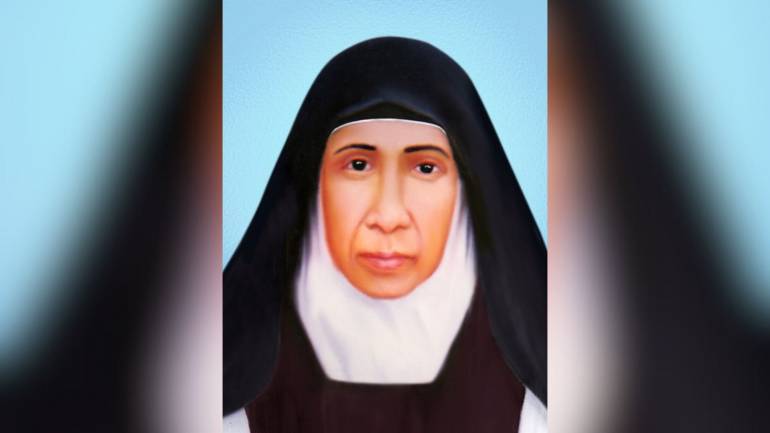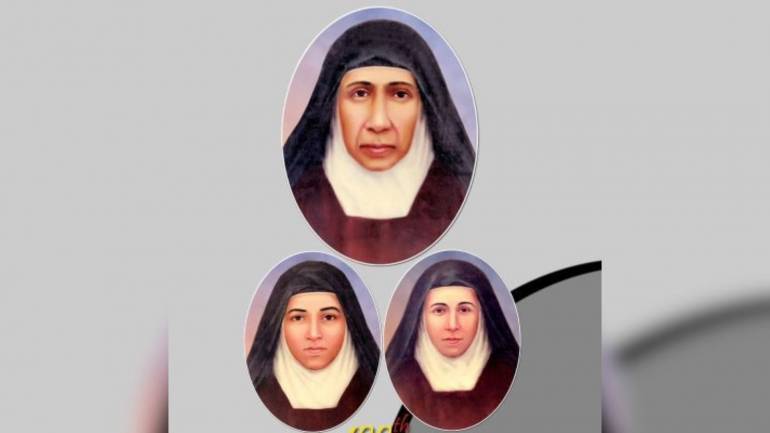Pope declares Indian Nun Mother Eliswa a Venerable
Pope Francis declared the Indian sister called Mother Eliswa a venerable who was the founder of the first indigenous Third Order Discalced Carmelite Congregation (TOCD) for women in Kerala, India, on November 8, 2023.
The Dicastery for the Causes of Saints was authorized by His Holiness Pope Francis to promulgate the Decrees regarding the heroic virtues of the Servant of God Eliswa of the Blessed Virgin Mary (born Eliswa Vakayil), Founder of the Third Order of Discalced Carmelite Nuns, now called Teresian Carmelite Sisters, as Venerable and during the Audience he granted His Eminence Marcello Cardinal Semeraro on November 8, 2023.
When a deceased Catholic is identified as a Servant of God by a bishop and petitioned for beatification by the Pope, that Servant of God may be deemed venerable ("heroic in virtue") throughout the examination and procedure leading to possible sainthood.
The venerable Mother was born on October 15, 1831, in Ochanthuruth (Verapoly Archdiocese, India) and died on July 18, 1913, in Varapuzha (India).
As the founder of the first indigenous Third Order Discalced Carmelite Congregation (TOCD) for women in Kerala, Mother Eliswa was the forerunner of women's religious movements. Later, the Congregation of Teresian Carmelites (CTC) became the Congregation of the Mother of Carmel (CMC).
In Kerala, she founded the first convent school, boarding house, and orphanage for girls, focusing on valuing and educating them holistically.
Through the foundress, Servant of God Mother Eliswa Vakayil, more than 7000 sisters received heavenly beams of prayer sacrifice and service.
The first religious sister in Kerala, India, was Mother Eliswa, who was the mother of all consecrated women.
Her parents were Thomman and Thanda, and she was the first of eight children born to the noble Vyppissery Capithan family in Cruz Milagris Parish at Ochanthuruth, India.
The third brother, Louis, was ordained as a priest for the St Pius X Province of the Discalced Carmelite Order in India, as well as establishing the first Catholic magazine, Sathyanadhakahalam (Proclaim the Truth).
In addition to writing ten books, Louis was also a scholar, linguist, and Bible translator in Malayalam.
Eliswa married Vatharu Vakayil in 1847 when she was 16 and gave birth to a daughter, Anna. After Vatharu died, Eliswa chose a life of prayer, detachment, and solitude, received the Sacraments frequently, and spent years in silence in preparation to live a life of inspiration.
It was Father Leopold Beccaro, an Italian Carmelite missionary, who revealed to Eliswa God's plan, and her daughter, Anna, followed suit and also met Father Leopold and expressed the desire to consecrate her life to God, as well as Thresia, Mother Eliswa's younger sister.
Archbishop Bernardine Baccinelli, OCD, the Vice Apostolic of Verapoly, approved the decree of the establishment of the Third Order of the Discalced Carmelite Congregation for Women (TOCD).
Three Latin-rite women moved into a newly built bamboo convent on their property on February 13, 1866, the first convent in Kerala, and it has a unique place in Catholic history.
The sisters moved from the bamboo convent to St Teresa's Convent at Koonammavu, which had just been built on the property owned by Mother Eliswa and her daughter Anna, on March 27, 1867, after Mother Eliswa welcomed members of the Syro-Malabar Rite.
According to the Sacred Congregation of Propaganda Fide decree of March 24, 1890, St Teresa's Convent at Koonammavu was transferred to the Vicariate of Thrissur from the Archdiocese of Verapoly.
They were sheltered in St. Teresa's Convent (CSST) Ernakulam for a few days and then brought to Varapuzha by the Archbishop of Verapoly on September 17, 1890.
The TOCD Congregation now consists of two independent religious congregations: The Congregation of Teresian Carmelites (CTC) and the Congregation of the Mother of Carmel (CMC).
In 1997, her mortal remains were moved to a grave inside the memorial building known as Smruthi Mandhir in St. Joseph's Convent at Varapuzha after being buried in a special burial place in front of St. Joseph's and Mount Carmel Churches.
Radio Veritas Asia (RVA), a media platform of the Catholic Church, aims to share Christ. RVA started in 1969 as a continental Catholic radio station to serve Asian countries in their respective local language, thus earning the tag “the Voice of Asian Christianity.” Responding to the emerging context, RVA embraced media platforms to connect with the global Asian audience via its 21 language websites and various social media platforms.

















